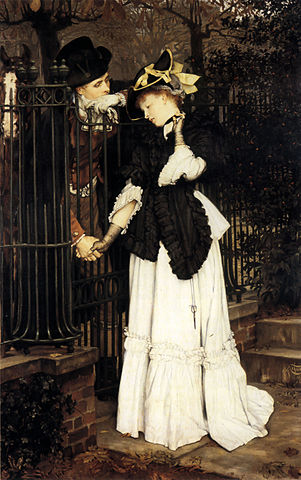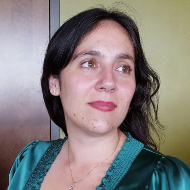 On May 19, 2017, a little more than two years after I started building what would become the Science Booster Club program here in Iowa, I participated in my last local event. At the Iowa City Public Library’s STEAM fest, we interacted with around two thousand people on the topic of climate change. In just a few weeks, I’ll be moving to NCSE headquarters in California to direct the program’s national expansion.
On May 19, 2017, a little more than two years after I started building what would become the Science Booster Club program here in Iowa, I participated in my last local event. At the Iowa City Public Library’s STEAM fest, we interacted with around two thousand people on the topic of climate change. In just a few weeks, I’ll be moving to NCSE headquarters in California to direct the program’s national expansion.In the few available moments of reflection, I had some time to look around. To have a chance to see where we were, and who we were among. It proved an interesting opportunity to see how the program, and NCSE, have grown and changed.
When NCSE hired me to organize the SBC pilot in the spring of 2015, the organization had decades of experience providing invaluable resources to people dealing with what we might call “hot” conflicts related to climate change or evolution. We dealt with situations involving legal cases, anti-science bills, situations where teachers were being directly targeted for teaching established science, and where community members were willing to stand up and complain about creationism being openly taught in their school. But we had little opportunity to interact with people in places where things hadn’t come to a head, teaching practices were less obviously egregious, or where nobody was willing to stand up and make a spectacle of themselves. Surveys suggested that evolution and climate change were not being taught, or being taught poorly, in thousands of schools. Why weren’t we hearing more about it? As an organization, we had limited interaction with communities at the ground level, and had less institutional knowledge than we might like regarding what non-scientists know and how they feel about our topics of interest.
Now, in the summer of 2017, we know a lot more about what average community members know and feel, and we have and are continuing to develop tools to help people understand, engage with, and find relevance in topics including evolution and climate change. We have worked with nearly eighty thousand people through the Science Booster Club program, and through our longitudinal data collection we have gathered some convincing evidence that our program’s presence in a community correlates with increases in community scientific literacy over time.
While maintaining our organization’s traditional and essential function of defending against overt threats to science education, the ability we have been developing to reach out to communities that struggle with or are undecided on these issues affords us a great possibility for social change. Our surveys were telling us that sixty percent of teachers hedge when they teach evolution for reasons primarily related to social concerns, and about fifty percent of teachers send mixed messages when they teach about climate change. Our work through the Science Booster Club project suggests that if we decrease community anxiety around these topics, we can help relieve the social concerns teachers experience. At the same time, the clubs give us an opportunity to provide adults with a positive and respectful experience of science, giving them accurate and accessible information about topics that are so societally polarized that public discussion is assumed to be unproductive.
In two years, we’ve worked not only with tens of thousands of people, but also with the very highest quality of partners. When I looked around at the other exhibitors at the Iowa City Public Library, I was honored to see that we were included in an event with the finest regional science education and outreach organizations. Each exhibitor was presenting high-quality content, on topics from flood control to robotics. With our accessible, respectful work on potentially high-conflict topics, we have filled an important niche in the outreach scene in Iowa. Now we know we can fill this niche in the educational landscape across the country.
There is still an enormous amount of work to be done on the ground in Iowa, but I won’t be doing it anymore. I’m going to be nurturing this new strand of NCSE’s work, to promote, fund, and scale it up. As I move to California, I’ll be moving into a new role, focusing more on research, analysis, development, and publication. Now that we have a national network of clubs rolling, we need to learn how to provide our volunteers with the best guidance possible, and make sure that everyone learns about this great strategy for increasing support for science education and improving scientific literacy in their communities.
What an exciting place to be, in just two years. I’ve really enjoyed doing all that work on the ground. But I didn’t talk to eighty-thousand people on my own. It took a lot of people to do that. I’d like to present, below, just a partial list of people who are continuing to engage communities through our Science Booster Club program. We’ve always known that for this program to succeed, I would have to build a model that volunteers could take over and run with. Without volunteer support, this program would not exist and could certainly never scale up to the national level. In Iowa, our network is strong. I know that the work we’ve started will continue to grow in Iowa, and across our nation.
Kyle McElroy ∙ Laura Bankers ∙ Joe Jalinsky ∙ Emily Jalinsky ∙ Tiffany Adrain ∙ Maurine Neiman ∙ Reagan Boeset ∙ J. D. Woodell ∙ Eric Tvedte ∙ Lidjia Stojanovic ∙ Marissa Roseman ∙ Anna Ward ∙ Kate Degner ∙ Claire Tucci (now Adrian-Tucci) ∙ John Logsdon ∙ Katie Larkin ∙ Elizabeth Stroebele ∙ Jorge Moreno ∙ Eric Engle ∙ Tara Schermser ∙ Brad Hoot ∙ Carlina Pothast ∙ Conor Welter ∙ Andrew DePristo ∙ Alexis Williams ∙ Anna Selmecki ∙ Caroline Wilford ∙ Madeline Peters ∙ Emma Greimann ∙ Robert Todd ∙ Ribhu Kaul ∙ Robert Marken Jr. ∙ Isaiah Schauer ∙ Frank Gregario ∙ Joshua Brown ∙ George Malanson ∙ Andrew Adrian ∙ Erika Binsley ∙ Nick Ford ∙ Amanda Field ∙ Tom Loke ∙ Alejandro de la Puente ∙ Matt Vrazo ∙ Margaret Murphy ∙ Amber Spallino ∙ Matthew Wagner ∙ Josh Thompson ∙ Kasra Zarei ∙ Sydney Skuodas ∙ Mohad Awan ∙ Krista Osadchuk ∙ Dean Balabanov ∙ Molly Pollpeter ∙ Ashley Parker — thanks to all of you!

